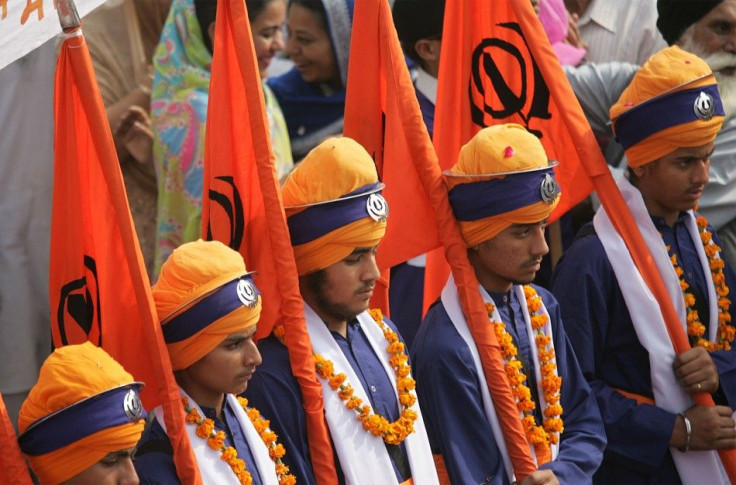Sikh Indian General Attacked In London In Flashback To Old Conflict

Three people have been arrested in connection with a sudden attack on an aged Indian general in London last weekend.
Retired Lt. Gen. Kuldeep Singh Brar, 78, was walking with his wife on Sunday night when four assailants approached him. They slashed his neck before running away, and Brar was rushed to the hospital shortly thereafter.
The attackers have so far not been identified. But there are three suspects now in custody in London: two men and one woman, all between the ages of 30 and 40, according to the BBC.
Behind this apparently random crime is a long history of sectarian violence in India. Brar’s attack is likely tied to a decades-old clash that centered around Sikh separatism.
For centuries, adherents to Sikhism -- a minority religion in India - have endured sporadic conflicts with their mostly Hindu and Muslim neighbors. There have also been clashes between different Sikh communities, usually between separatist extremist groups and their more moderate compatriots.
As Sunday’s attack has shown, those hostilities are still apparent today.
Brar himself is a Sikh, and he is best known for leading Indian troops into battle against a separatist Sikh group in the Punjabi city of Amritsar in 1984. There, the general participated in a military effort to flush out extremists who had gathered in the Golden Temple, the Sikhs’ holiest site.
About 400 people lost their lives in the violent clash, and it didn’t end there.
Prime Minister Indira Gandhi had ordered the strike, and many in Punjab were incensed. Gandhi herself was soon assassinated by two Sikh bodyguards, prompting violent riots across India. Thousands died in four days of mayhem.
Though 28 years have passed since then -- and Sunday’s attack in London was certainly jarring -- it is no surprise that Brar is still considered a target by some extremist Sikhs.
Still, the conflict has calmed down significantly since the 1980s. Sikhs today enjoy great prominence in Indian culture. Although they make up less than 2 percent of the population according to Indian census data, they constitute a highly influential community. Punjab, where most Sikhs reside, is India's richest state. Prime Minister Manmohan Singh is a Sikh, as are many army officers and government officials.
Old wounds are clearly healing, but there is still a long way to go.
And the same holds true for Brar. His neck injury was serious but not fatal, and the general was discharged from the hospital by Wednesday.
© Copyright IBTimes 2025. All rights reserved.






















